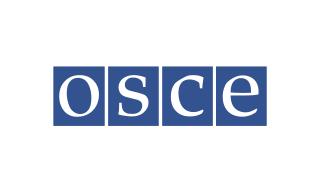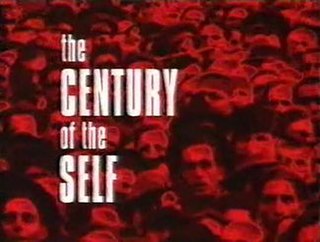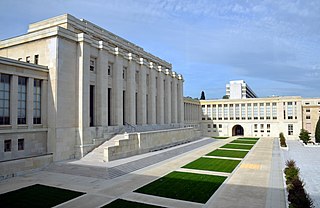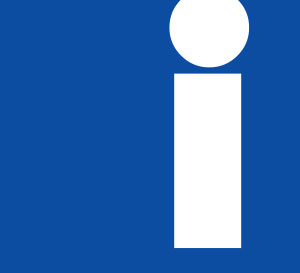
The Organization for Security and Co-operation in Europe (OSCE) is the world's largest regional security-oriented intergovernmental organization with observer status at the United Nations. Its mandate includes issues such as arms control, promotion of human rights, freedom of the press, and free and fair elections. It employs around 3,460 people, mostly in its field operations but also in its secretariat in Vienna, Austria, and its institutions.
The consultative status is a phrase whose use can be traced to the founding of the United Nations and is used within the UN community to refer to "Non-governmental organizations (NGOs) in Consultative Status with the United Nations Economic and Social Council". Also some international organizations could grant Consultative Status to NGOs. Organization for Security and Co-operation in Europe (OSCE) could grant Consultative Status in the form of "Researcher-in-residence programme" : accredited representatives of national and international NGOs are granted access to all records and to numerous topical compilations related to OSCE field activities.

Nossrat Peseschkian lived in Germany since 1954. He was a specialist in neurology, psychiatry, psychotherapy and psychosomatic medicine. Peseschkian founded Positive Psychotherapy in 1968, based on a cross-cultural approach; he was also the founder of the Wiesbaden Academy of Psychotherapy (WIAP), a German-state-licensed, postgraduate institute of psychotherapy.

The Century of the Self is a 2002 British television documentary series by filmmaker Adam Curtis. It focuses on the work of psychoanalysts Sigmund Freud and Anna Freud, and PR consultant Edward Bernays. In episode one, Curtis says, "This series is about how those in power have used Freud's theories to try and control the dangerous crowd in an age of mass democracy."

The International Sociological Association (ISA) is a non-profit organization dedicated to scientific purposes in the field of sociology and social sciences. It is an international sociological body, gathering both individuals and national sociological organizations. The ISA was founded in 1949 under UNESCO and it has about 4,500 individual and 45 collective members, hailing from 167 countries. Its sole purpose is to "represent sociologists everywhere, regardless of their school of thought, scientific approaches or ideological opinion" and its objective is to "advance sociological knowledge throughout the world". Along with the Institut International de Sociologie (IIS), it is seen as a world-leading international sociological organization.

Sigmund Freud University (SFU) is a private and for-profit university accredited by the Austrian Accreditation Council in August 2005 located in Vienna, Austria. As a university in the field of Human Sciences, SFU specializes in Psychotherapy Science, Psychology, Medicine, and Law. Professor Alfred Pritz serves as Director of Sigmund Freud University, and Professor Giselher Guttmann serves as Academic Dean.
The United Kingdom Council for Psychotherapy (UKCP) is a professional association of psychotherapy organisations and practitioners in the United Kingdom. It is restricted to registered clinical psychotherapists and psychotherapeutic counsellors.
The International Union of Basic and Clinical Pharmacology (IUPHAR) is a voluntary, non-profit association representing the interests of scientists in pharmacology-related fields to facilitate Better Medicines through Global Education and Research around the world.
The British Association for Counselling and Psychotherapy (BACP) is a professional body for counsellors and psychotherapists practising in the United Kingdom.

The International Rehabilitation Council for Torture Victims (IRCT) is an independent, international health professional organization that promotes and supports the rehabilitation of torture victims and works for the prevention of torture worldwide. Based in Denmark, the IRCT is the umbrella organization for over 160 independent torture rehabilitation organizations in 76 countries that treat and assist torture survivors and their families. They advocate for holistic rehabilitation for all victims of torture, which can include access to justice, reparations, and medical, psychological, and psycho-social counseling. The IRCT does this through strengthening the capacity of their membership, enabling an improved policy environment for torture victims, and generating and share knowledge on issues related to the rehabilitation of torture victims. Professionals at the IRCT rehabilitation centers and programs provide treatment for an estimated 100,000 survivors of torture every year. Victims receive multidisciplinary support including medical and psychological care and legal aid. The aim of the rehabilitation process is to empower torture survivors to resume as full a life as possible. In 1988, IRCT, along with founder Inge Genefke, was given the Right Livelihood Award "for helping those whose lives have been shattered by torture to regain their health and personality."

The International Alliance of Women is an international non-governmental organization that works to promote women's rights and gender equality. It was historically the main international organization that campaigned for women's suffrage. IAW stands for an inclusive, intersectional and progressive liberal feminism on the basis of human rights and liberal democracy, and has a liberal internationalist outlook. IAW's principles state that all genders are "born equally free [and are] equally entitled to the free exercise of their individual rights and liberty," that "women's rights are human rights" and that "human rights are universal, indivisible and interrelated." In 1904 the Alliance adopted gold as its color, the color associated with the women's suffrage movement in the United States since 1867 and the oldest symbol of women's rights; through the Alliance's influence gold and white became the principal colors of the mainstream international women's suffrage movement.
The International Federation of Social Workers (IFSW) is the worldwide body for professional social work. It comprises 141 professional social work associations representing over 3 million social workers. IFSW has formal consultative status with the United Nations and other global bodies. The organisation’s purpose is to contribute to achieving a social just world through professional social work. IFSW and its partners set and review the international standards of social work, the Definition of Social Work and policies that promote good practice outcomes.

The World Assembly of Youth (WAY); French: Assemblée Mondiale de la Jeunesse, Spanish: Asamblea Mundial de la Juventud is the international coordinating body of national youth councils and national youth organisations. The full members of WAY are national youth councils. WAY currently has 140 member organisations from all continents. As the international coordinating body of national youth councils, WAY has special consultative status with the United Nations, the highest status possible for a non-governmental organization. WAY co-operates with the UN and many of its special agencies, particularly with UNAIDS, UNEP, ILO, UNESCO, UNFPA, UNICEF, UNDP, UNCTAD and WHO.

An international organization, also known as an intergovernmental organization or an international institution, is an organization that is established by a treaty, or is an instrument governed by international law and possessing its own legal personality, such as the United Nations, the World Health Organization, Save the Children International, and NATO. International organizations are composed of primarily member states, but may also include other entities, such as other international organizations, firms, and nongovernmental organizations. Additionally, entities may hold observer status. An alternative definition is that an international organization is a stable set of norms and rules meant to govern the behavior of states and other actors in the international system.
The NGO Committee on the Status of Women, New York (NGO/CSW/NY) is one of three women's committees of the Conference of NGOs in Consultative Relationship with the UN (CoNGO). Established in 1972, it provides an open forum for women's voices to be heard at the United Nations. The NGO/CSW/NY assists girls and women of all ages to advocate and organize for the implementation of global agreements, including the Nairobi Forward Looking Strategies, Beijing Platform for Action, UN Security Council Resolution 1325, the Millennium Development Goals and the Convention on the Elimination of All Forms of Discrimination against Women (CEDAW). The committee works in cooperation with the NGO Committees on the Status of Women in Geneva and Vienna.

The European Association for Psychotherapy (EAP) is a Vienna-based umbrella organisation for 128 psychotherapist organizations from 42 countries with a membership of more than 120,000 psychotherapists. Individual members may also join the organisation directly rather than through one of its member organisations.

The International Romani Union, formerly known as the International Gypsy Committee and International Rom Committee, is an organization active for the rights of the Romani people. Its seat is in Vienna. The International Romani Union also has offices in Skopje, North Macedonia, and Washington, D.C., USA.

The International Union of Socialist Youth (IUSY) is an international youth labor organization, whose activities include publications, support of member organizations and the organization of meetings. Then named the Socialist Youth International, it was formed at the 1907 International Socialist Congress at Stuttgart as the youth wing of the Second International.
The International Economic Association (IEA) is an NGO established in 1950, at the instigation of the Social Sciences Department of UNESCO. To date, the IEA still shares information and maintains consultative relations with UNESCO. In 1973 the IEA became a federated member of the International Social Science Council.











